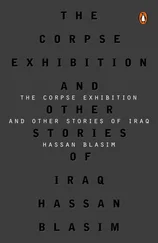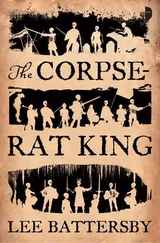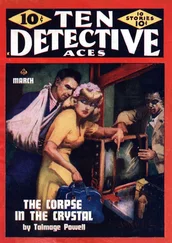“Thank you mother,” I said. I went upstairs, got dressed and made my way out of the house. When she heard my footsteps she said, “Godspeed, son,” but I didn’t answer.
When I came home that evening she kissed my forehead and apologized.
“What can I do, son. My heart was scorched.”
“There is no heart in this country that isn’t crushed, mother.”
We had tea in front of the TV. The daily harvest of news was the same stuff I had heard on the radio all day: responding to a statement by the grand cleric al-Sistani, angry demonstrations took place in Baghdad, Najaf, and Basra. There were lethal attacks on five Sunni mosques in Baghdad, and mosques in other cities were torched. I looked at my mother. “What do you expect?” she said. “Their hearts are scorched.”
“So they go burn mosques because their hearts are scorched?”
She probably figured that if we got into an argument I would just leave and go to the Internet café, so she retreated by saying, “You are right. Even if they drew blood first, one shouldn’t burn a place of worship.”
The government declared three days of official mourning. As for the sectarian killings, they spread without any official announcements and lasted well beyond the three days. The satellite channels were buzzing with noise and sectarian frenzy on both sides. They hosted many turbaned men, most of whom were experienced in fanning the flames of hatred and rousing other zealots of their sects, especially masked ones, to translate what was being said with their weapons and eloquent daggers. The next day more than a hundred bodies were found all around Baghdad. The rate of corpses delivered to the mghaysil didn’t increase, but I thought of my Sunni comrades on the other side of this valley whose hours were now choked with death and water.
My uncle sent an e-mail asking whether things were all right with us. He reminded me of what he had said three years earlier when he visited. He had said that the hell of sectarianism was inevitable and that helmets and turbans would sever heads and burn everything in sight. He reiterated his offer to help me if I still intended to emigrate or to continue my studies abroad as I had told him when he was in Baghdad. I wrote back and told him that I was thinking about it, but my mother’s fate, if I were to leave, was paralyzing me.
A deep voice says: “Remove the blindfold.”
At a desk in front of me sits a man whose features I can’t make out in the blinding light.
He asks, “Is your name Jawad Kazim?”
“Yes.”
He looks at some papers in front of him and reads: “Graduated Academy of Fine Arts. Failed sculptor. Painter. Are you a believer?”
Bewildered by his question, I say, “Excuse me?”
He screams: “Motherfucker. Don’t try to be a smart ass with me. You understand the question very well. Are you a believer?”
“Yes, thank God, I am.”
He motions to the man standing next to me. The latter punches me so hard I fear my head will fall off.
“You piece of shit! You haven’t fasted or prayed or gone to a mosque in a hundred years and you say you are a believer? How could you desecrate the bodies of martyrs when you are a dirty apostate? Why are you meddling in this profession anyway if you are an artist?”—He says “artist” sarcastically and in a different tone—“It’s better for you to scribble away and play with your mud or shit. Go get drunk and fuck around with your faggot artist friends, but don’t touch the bodies of honorable men, you piece of shit. I’ll tear your ass apart.”
His phone rings. “I’ll teach you,” he says, then answers his phone and starts chatting and joking with a friend, making plans for dinner.
I woke to the ringing of my phone.
Three months after the bombing of the al-Askari mosque I went home after work and found my mother and some relatives sitting in the guest room. I was tired and wanted just to say a quick hello. The door was ajar. I saw a familiar face — a female cousin whom I had seen a few years before at a wedding. A much younger and very beautiful girl who resembled her sat between her and a boy of about ten. When I knocked at the door, the woman covered her head with a black scarf, but the girl smiled at me and kept her head uncovered. We exchanged greetings and I welcomed them.
“Do you remember Um Ghayda’?” asked my mother.
“Yes, of course,” I said.
“And this is her lovely daughter Ghayda’ and her son Ghayth.”
I welcomed them again, then excused myself and went to the kitchen to get some food. My mother followed me and said she wanted to discuss something. Um Ghayda’ and her children were in a tight spot. “They can’t stay at their own house in ‘Amiriyya,” she said, “because of all the threats they’re getting and all the killing over there. Her husband was killed five months ago, and she is alone. She wants to stay with us until things calm down, since our neighborhood is safe for Shiites.”
I said that it was fine by me. My mother kissed me on my cheek, saying, “I was afraid you’d be upset.”
I didn’t spend much time at home to start with, especially since getting addicted to the Internet. I knew that the house had become too empty for my mother after my father’s death. My sister rarely visited. I thought that the company of Um Ghayda’ might cheer her up. The guest room was big enough for the three of them to sleep in. It turned out later that Um Ghayda’ had back pains, so my mother invited her to sleep with her in her bed. Ghayda’ and Ghayth slept in the guest room on mattresses that Ghayda’ would spread at night and pick up in the morning.
I wasn’t averse to solitude, but their presence restored some life to our house, especially when we gathered for dinner at night in front of the TV. I noticed also that my mother’s mood was much better than before. Her sighs and complaints decreased. She listened less often to the Shiite lamentation tapes that were popular at the market, and whose singers could sometimes be seen on the satellite channels as well. I explained to her that the death I saw every day from morning till evening was enough for me. I wanted to come home not to more mourning but merely to some peace of mind.
I am washing the corpse of a skinny old man with white hair and a wrinkly face and forehead. My mind wanders. The man opens his eyes, shakes his head, and tries to get up. The small bowl falls from my hand and I retreat from the bench in fear.
He says in a hoarse voice, “I didn’t think that I would have to do this myself, but you can’t focus and keep thinking of silly shit.” He picks up the bowl, fills it with water, and pours it on his head. He reaches for the ground lotus. I try to give him a hand, but he refuses and tells me to go away and sit down.
Dozens of corpses start coming from every direction. Some come through the main door, others from the side door which leads to the small garden. Some come out of the storage room. Some wear nothing but a cloth around the waist. Others are shrouded and trying to shed their shrouds as they approach the washing bench. Corpses begin to wash one another and others stand in line around the bench awaiting their turns. Their numbers multiply and they fill the entire mghaysil, leaving no place for me. I go out into the street, but throngs of living corpses are surrounding the place, filling the streets and sidewalks. I start to suffocate, then bolt awake.
The restaurant that Abu Ghayda’ had co-owned on the road to al-Taji military camp had been bombed by the Americans at the beginning of the war. He used to joke that the hot spices and pickled mango he used in his falafel sandwiches were at the top of the Pentagon’s list of weapons of mass destruction that threatened the world. He and his partner repaired the restaurant and reopened it four months later, but business was slow. That area had become a battleground for the Americans and the armed men who attacked them. Abu Ghayda’ lost everything and was forced to close shop.
Читать дальше












